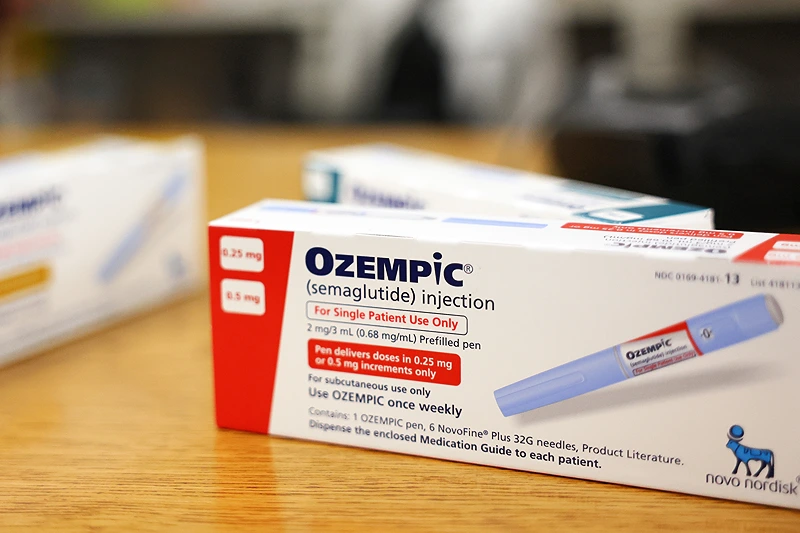
OAN’s Brooke Mallory
3:33 PM – Thursday, September 28, 2023
The diabetic treatment Ozempic, which has gained popularity for not only diabetes but weight loss too, now lists clogged intestines as a side effect on the label.
The modification follows the Food and Drug Administration’s (FDA) approval of a number of product revisions from pharmaceutical company Novo Nordisk.
Ozempic now joins other medicines in the popular family of drugs known as GLP-1 agonists in acknowledging a rise in complaints of what medical professionals refer to as ileus, or a blockage in the intestines.
Wegovy, a Novo Nordisk semaglutide injectable taken for weight reduction, as well as Mounjaro, an Eli Lilly diabetic treatment, acknowledge reports of ileus on their labels.
However, the FDA refrained from blaming the medicines specifically for the potentially fatal disease.
“Because these reactions are reported voluntarily from a population of uncertain size, it is not always possible to reliably estimate their frequency or establish a causal relationship to drug exposure,” the label reads.
According to statistics supplied by the government until June 30th, the FDA has received 8,571 reports of gastrointestinal problems following the use of semaglutide drugs, which both include Ozempic and Wegovy.
33 cases of semaglutide takers, including two fatalities, are documented on the FDA’s dashboard, with ileus identified as a side effect.
A lawsuit has been filed against Novo Nordisk and Eli Lilly over allegations that the drugs can result in gastroparesis, or stomach paralysis, which prevents food from entering the small intestine even when there is no obstruction.
“Although there is some overlap in the terms, ileus and gastroparesis, they are not synonymous,” FDA spokesperson Chanapa Tantibanchachai said in a statement.
Tantibanchachai pointed out that the labels of drugs like Ozempic and others already reference the fact that they induce “delay of gastric emptying.” However, the regulatory body is nonetheless keeping an eye on “reports of gastroparesis and other related terms” in medication usage.
“If newly identified safety signals are identified, the FDA will determine what, if any, actions are appropriate after a thorough review of available data,” Tantibanchachai said.
On Thursday, Novo Nordisk made a statement implying that they would acknowledge the update to its label, asserting that the company was working hand in hand with the FDA “to continuously monitor the safety profile of our medicines.”
“Novo Nordisk stands behind the safety and efficacy of Ozempic and all of our medicines when used consistent with the product labeling and the approved indications. For Ozempic, the most commonly reported side effects include: nausea, vomiting, diarrhea, stomach (abdominal) pain, and constipation,” the company said in its statement.
Stay informed! Receive breaking news blasts directly to your inbox for free. Subscribe here. https://www.oann.com/alerts

